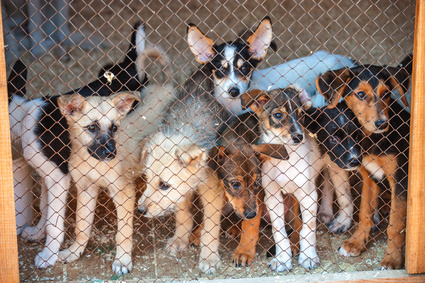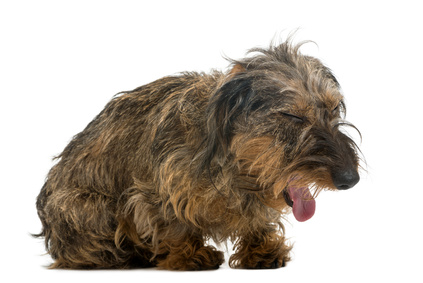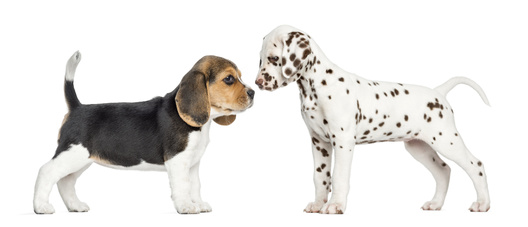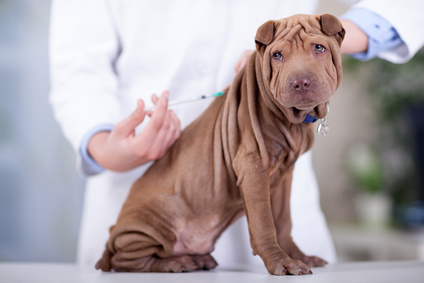
The kennel cough

Kennel cough or infectious tracheobronchitis is a highly contagious disease affecting dogs and, as indicated by his name, resulting in a strong cough.
It's called "kennel cough" because of its very high contagiousness which implies an even higher risk of illness in kennel or in any place where dogs are found in large numbers (community life, canine gatherings…).
Which pathogens ?
Kennel cough is due to various viral or bacterial pathogens present alone or associated :
- virus Parainfluenza,
- canine adenovirus,
- Herpesvirus,
- reovirus,
- bactérie Bordetella bronchiseptica.
These viruses and bacteria reach the respiratory system of the dog and create inflammation of the trachea and bronchi.
What symptoms ?
This disease is characterized by severe coughing, dry and hoarse, and very often "emetic" (the dog tries to vomit or cough).

The animal's general condition is sometimes altered : decrease of appetite, fatigue…
The animal may have fever. Nasal and eye discharge and sneezing are also sometimes observed.
Symptoms may last more 2 weeks !
Target…
The most frequently affected animals with this disease are young dogs living in community or who gather at rallies (kennels, pension, packs of hounds, sports events, dog training courses, exhibitions ....). Although they are not the main population at risk, adults can also be affected. Older dogs or weakened can easily contract the disease due to their poorer immunity.
Contamination
The dog is contaminated by casual contact "face to face" with an infected dog or the "aerosol" emitted by an infected dog coughs or sneezes. The incubation time is short enough : a week on average (delay between the dog's infection to onset of symptoms).

Is it serious doctor ?
This is a condition that is treatable and has a good prognosis provided it is taken early enough. The veterinarian prescribed to animals of anti-tussive treatment and sometimes antibiotics if the causative agent is bacterial or secondary superinfections are suspected.
If treatment is not started soon enough, pneumonia complications can occur, may lead, in rare cases, the death of the animal.
How to avoid ?
The best way to protect your dog against kennel cough vaccination.
This can be done either by injection, or by spraying intranasal. It protects against Parainfluenza virus and Bordetella bronchiseptica.
Vaccination by injection can be done from the age of 4 to 6 weeks (depending on whether the puppy's mother has itself been vaccinated or not) and a second injection is performed 2 to 3 weeks after. An annual reminder is then necessary.
Vaccination intranasal possible from the age of 3 weeks and a single dose only the first year. An annual booster is then recommended.

§
So think well to vaccinate your dog against kennel cough, often benign disease if treated early, but sometimes leads to complications !
The vaccine is usually required if your pet stays in a kennel but it is also very highly recommended for all animals involved in canine groups (expositions, During dog training ...) ! Do not hesitate to seek advice from your veterinarian.
authors : Drs. Caroline Allard and Magali Pernot – Vetup®
